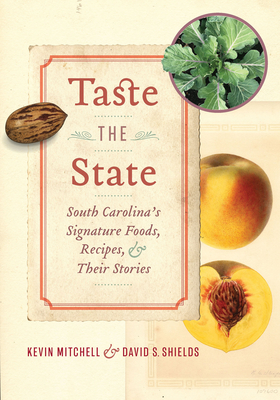
Mitchell, Kevin
A vivid cultural history of South Carolina's most distinctive ingredients and signature dishes
From the influence of 1920 fashion on asparagus growers to an heirloom watermelon lost and found, Taste the State abounds with surprising stories from South Carolina's singularly rich food tradition. Here, Kevin Mitchell and David S. Shields present engaging profiles of eighty-two of the state's most distinctive ingredients, such as Carolina Gold rice, Sea Island White Flint corn, and the cone-shaped Charleston Wakefield cabbage, and signature dishes, such as shrimp and grits, chicken bog, okra soup, Frogmore stew, and crab rice. These portraits, illustrated with original photographs and historical drawings, provide origin stories and tales of kitchen creativity and agricultural innovation; historical "receipts" and modern recipes, including Chef Mitchell's distillation of traditions in Hoppin' John fritters, okra and crab stew, and more.
Because Carolina cookery combines ingredients and cooking techniques of three greatly divergent cultural traditions, there is more than a little novelty and variety in the food. In Taste the State Mitchell and Shields celebrate the contributions of Native Americans (hominy grits, squashes, and beans), the Gullah Geechee (field peas, okra, guinea squash, rice, and sorghum), and European settlers (garden vegetables, grains, pigs, and cattle) in the mixture of ingredients and techniques that would become Carolina cooking. They also explore the specialties of every region--the famous rice and seafood dishes of the lowcountry; the Pee Dee's catfish and pinebark stews; the smothered cabbage, pumpkin chips, and mustard-based barbecue of the Dutch Fork and Orangeburg; the red chicken stew of the midlands; and the chestnuts, chinquapins, and corn bread recipes of mountain upstate.
Taste the State presents the cultural histories of native ingredients and showcases the evolution of the dishes and the variety of preparations that have emerged. Here you will find true Carolina cooking in all of its cultural depth, historical vividness, and sumptuous splendor--from the plain home cooking of sweet potato pone to Lady Baltimore cake worthy of a Charleston society banquet.







